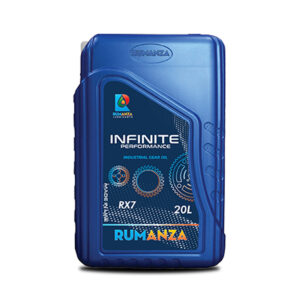What Are the Latest Trends in Sustainable Industrial Oils for UAE Manufacturers?
Industrial oils form the lifeline of heavy industries, enabling machines, turbines, compressors, and production lines to function seamlessly. They reduce friction, cool equipment, prevent wear, and ensure uninterrupted operations. In a fast-developing economy like the UAE—where energy, petrochemicals, construction, and manufacturing drive growth—industrial oils are indispensable.
But today, the conversation around industrial oils is no longer limited to performance. Global concerns about climate change, carbon emissions, and environmental degradation have shifted the focus to sustainability. In this context, sustainable industrial oils are emerging as the future, offering eco-friendly alternatives that align with both regulatory demands and corporate responsibility.
This article explores the latest trends in sustainable industrial oils for UAE manufacturers, analyzes the pros and cons, and provides a detailed comparison between conventional and eco-friendly options. At the end, we will also highlight how Rumanza Industrial Oil is shaping this transformation in the region.
Why Sustainability Matters for UAE Manufacturers
The UAE is positioning itself as a global hub for sustainable industries under frameworks such as:
UAE Energy Strategy 2050 – targeting 50% clean energy in the mix.
Net Zero by 2050 Initiative – commitment to carbon neutrality.
Dubai Clean Energy Strategy 2050 – reducing reliance on fossil fuels.
For industrial manufacturers, adopting eco-friendly oils is part of this larger sustainability journey. The oil and gas, power, and construction sectors—major industrial pillars in the UAE—consume thousands of tons of lubricants every year. Moving toward sustainable oils reduces waste, prevents soil and water contamination, improves worker safety, and aligns with both global supply chain requirements and local regulations.
Defining Sustainable Industrial Oils
Sustainable industrial oils are lubricants designed with environmental performance in mind without compromising technical efficiency. Their features include:
Use of biodegradable base oils derived from renewable resources (e.g., esters, plant-based feedstocks).
Reduced toxicity for safer handling and minimal ecological impact.
Extended life cycles, requiring fewer oil changes and lowering waste volumes.
Energy-saving additives that improve machine efficiency and reduce CO₂ emissions.
Compatibility with recycling and re-refining practices in a circular economy model.
For UAE manufacturers, sustainable oils serve a dual purpose: supporting industrial output while minimizing the environmental footprint.
Key Trends in Sustainable Industrial Oils
1. Biodegradable & Bio-Based Oils
Derived from vegetable oils and synthetic esters, these oils are designed to degrade naturally without polluting soil or groundwater. They are especially relevant for industries operating near sensitive ecosystems such as offshore drilling platforms, ports, and desert-based construction sites.
Use case in UAE: Hydraulic oils in marine operations and biodegradable gear oils in cranes at construction projects.
2. Energy-Saving Oils with Advanced Additives
Formulations now include friction modifiers, anti-wear agents, and viscosity improvers that allow machines to operate at peak efficiency. Less friction means lower energy consumption, reduced heat buildup, and longer component life.
Use case in UAE: Petrochemical plants and cement factories, where energy costs are high and efficiency gains have direct financial impact.
3. Extended Drain Interval Oils
Long-life oils reduce maintenance frequency and cut down on waste disposal. This trend is crucial for industries in the UAE, where extreme heat can accelerate oil degradation. Sustainable oils engineered for extended life help manufacturers maintain efficiency under desert conditions.
Use case in UAE: Power generation plants and logistics fleets that benefit from reduced oil changes and downtime.
4. Synthetic & Semi-Synthetic Oils
These engineered oils are more stable under high pressure and temperature. They resist oxidation, maintain viscosity, and prolong machinery life—all while minimizing emissions.
Use case in UAE: Heavy industries like steel manufacturing and oil refineries, which operate under extreme thermal loads.
5. Water-Soluble & Low-Toxicity Cutting Oils
Machining and metal-cutting operations release mist and fumes, often harmful to workers. Low-toxicity, water-soluble cutting fluids are replacing traditional oils, providing both environmental and health benefits.
Use case in UAE: Automotive parts manufacturing, aerospace machining, and precision engineering.
6. Smart Oils & IoT-Enabled Monitoring
With Industry 4.0 and IoT adoption in UAE factories, oils are being designed with sensors and monitoring capabilities. These “smart oils” allow real-time tracking of oil health, viscosity, contamination, and wear metals.
Use case in UAE: Factories integrating predictive maintenance, reducing both waste and costs.
7. Circular Economy & Oil Re-Refining
Instead of discarding used oils, UAE manufacturers are exploring re-refining technologies. Through advanced filtration and chemical treatment, waste oils are transformed back into high-quality base oils. This reduces environmental impact and supports the nation’s push toward circular economy models.
Pros and Cons of Sustainable Industrial Oils
While sustainable oils are promising, it is important to evaluate both their benefits and limitations.
Pros
Eco-Friendly: Biodegradable, renewable, and low toxicity.
Cost Savings: Extended drain intervals reduce maintenance costs and downtime.
Energy Efficiency: Advanced additives minimize friction and lower energy use.
Worker Safety: Reduced fumes and toxins improve workplace health.
Compliance: Aligns with UAE sustainability policies and global environmental standards.
Cons
Higher Initial Cost: Sustainable oils are often more expensive upfront than conventional options.
Compatibility Issues: Some legacy machines may not perform well with newer formulations.
Availability: Limited local supply compared to traditional oils, though this is improving.
Storage Sensitivity: Some bio-based oils have shorter shelf lives if not stored properly.
Comparison: Traditional Industrial Oils vs. Sustainable Industrial Oils
| Feature | Traditional Industrial Oils | Sustainable Industrial Oils |
|---|---|---|
| Base Composition | Petroleum-based | Bio-based, synthetic, or re-refined |
| Environmental Impact | High (toxic, non-biodegradable) | Low (biodegradable, eco-friendly) |
| Oil Life & Maintenance | Shorter, frequent changes | Extended drain intervals, reduced waste |
| Energy Efficiency | Standard | Enhanced with additives for efficiency |
| Worker Safety | Higher risk due to fumes/toxicity | Safer, low-toxicity formulations |
| Initial Cost | Lower upfront | Higher upfront, but cost-effective long term |
| Regulatory Compliance | Increasingly restricted | Fully aligned with green policies |
| Suitability in UAE Climate | May degrade faster in heat | Engineered for extreme temperature stability |
This comparison makes it clear why UAE manufacturers are transitioning toward sustainable options despite higher upfront costs. The long-term benefits—financial, environmental, and reputational—outweigh the challenges.
Future Outlook: Where the UAE is Headed
The UAE is not just following global sustainability trends but also leading them. Future innovations in industrial oils are expected to include:
Nanotechnology-based oils that enhance wear protection at the molecular level.
Fully recyclable oils with closed-loop reuse cycles.
Hybrid synthetic-bio blends that balance performance and cost.
AI-driven oil monitoring integrated with industrial automation systems.
By 2030, sustainable oils will likely dominate UAE’s industrial oil market, especially as regulations tighten and manufacturers prioritize carbon reduction strategies.
Why Rumanza Industrial Oil is a Game-Changer
When discussing sustainable oils in the UAE, Rumanza Industrial Oil stands out as a leader. Known for its cutting-edge formulations and eco-conscious designs, the brand provides solutions that meet both performance and environmental standards.
Key advantages of Rumanza Industrial Oil:
Wide portfolio covering hydraulic oils, gear oils, turbine oils, transformer oils, and cutting fluids.
Oils engineered to withstand UAE’s harsh desert climate.
Commitment to long-life oils that reduce maintenance costs.
Proven record of aligning with UAE’s Net Zero by 2050 vision.
For manufacturers looking to balance sustainability with productivity, Rumanza offers a trusted and future-ready partner.
Final Thoughts
Sustainability is no longer a buzzword—it is a mandate for UAE manufacturers. As industries transition from conventional to eco-friendly lubricants, sustainable industrial oils are emerging as a crucial enabler of growth, efficiency, and environmental responsibility.
From biodegradable and bio-based oils to IoT-enabled smart formulations, the latest trends highlight the industry’s commitment to innovation and sustainability. While challenges such as cost and compatibility exist, the long-term benefits in terms of efficiency, compliance, and reputation far outweigh them.
For manufacturers in the UAE, adopting these oils is both a business advantage and a moral responsibility. With leaders like Rumanza Industrial Oil in UAE at the forefront, the future of industrial operations in the UAE is set to be both productive and sustainable.
FAQs
Yes, the upfront cost is usually higher. However, sustainable oils last longer, reduce maintenance frequency, save energy, and lower waste disposal costs—making them more cost-effective over the long term.
Absolutely. Brands like Rumanza Industrial Oil develop formulations specifically engineered for extreme temperatures, ensuring thermal stability, oxidation resistance, and consistent viscosity in UAE’s challenging conditions.
Oil re-refining involves treating used oils to remove contaminants and restore them to high-quality base oils. This process reduces waste, lowers dependency on virgin crude oil, and supports a circular economy—something the UAE is actively promoting.

Radiator Stop Leak UAE: Quick Fix for Vehicle Cooling System Leaks
Radiator Stop Leak UAE: Quick Fix for Vehicle Cooling System Leaks Discover More Introduction: The Unforgiving UAE Climate and Your Vehicle’s Lifeline The United Arab Emirates’ automotive landscape is defined by extremes. Ambient temperatures that regularly surpass 45°C (113°F), coupled with intense urban congestion and long, high-speed desert drives, create a perfect storm of thermal stress for every vehicle. In this environment, your engine cooling system is not merely a subsystem; it is the single most critical component preventing catastrophic engine failure.

What Type of Transmission Oil in UAE Does My Car Need? Your Complete Guide
What Type of Transmission Oil in UAE Does My Car Need? Your Complete Guide Discover More Navigating the vast, sun-baked highways of the United Arab Emirates—from the dynamic urban sprawls of Dubai and Abu Dhabi to the majestic desert dunes and the tranquil mountain passes of the Hajar range—places extraordinary mechanical and thermal stress on every component of your vehicle. While conscientious drivers often prioritize engine oil changes, the vital lifeblood safeguarding the transmission, the complex heart of your car’s

Guide to UAE Turbine Oil Selection Application & Management for Industrial Facilities
Guide to UAE Turbine Oil Selection, Application, and Management for Industrial Facilities Discover More In the hyper-competitive industrial landscape of the United Arab Emirates, where operational excellence directly translates to economic advantage, turbine lubrication represents a critical nexus of reliability engineering and strategic asset management. This comprehensive guide, developed with technical insights from Rumanza Lubricants, provides an unprecedented deep dive into the science, selection criteria, and life-cycle management of turbine oils specifically engineered for the extreme operating conditions of the

Synthetic vs. Mineral Hydraulic Oil in UAE : Which is Best for Your Operation?
Synthetic vs. Mineral Hydraulic Oil in UAE : Which is Best for Your Operation? Discover More Across the dynamic landscape of the United Arab Emirates—from the megaprojects of Dubai Marina to the intricate conveyor systems of Jebel Ali Port, from the massive hydraulic shovels in Al Dhafra quarries to the precision automated lines in Abu Dhabi’s industrial cities—the silent, powerful force of hydraulics is indispensable. These systems convert fluid power into monumental force and precise motion. At the core of

What is a Pour Point Depressant? | Benefits, Uses & How It Works Mechanism
What is a Pour Point Depressant? | Benefits, Uses & How It Works Mechanism Discover More In the intricate world of lubricant formulation, few additives play as critical yet understated a role in cold-weather operability as Pour Point Depressants (PPDs). These specialized chemical compounds are the linchpin that prevents machinery from seizing up when temperatures plummet. This in-depth guide goes beyond the basics, exploring the sophisticated chemistry, detailed mechanism, nuanced benefits, and practical considerations of PPDs. We will also examine the

Guide to Gasoline Engine Oils for UAE’s Extreme Climate: Engineering Peak Performance
Gasoline Engine Oils for UAE’s Extreme Climate: Engineering Peak Performance Discover More In the heart of the Arabian Peninsula, the United Arab Emirates stands as a testament to human ambition, with its engineering marvels and endless highways. Yet, this environment of soaring achievement is also one of the most punishing on Earth for machinery. For your vehicle—whether a nimble city sedan, a powerful family SUV, or a high-performance sports car—the UAE’s climate is a relentless adversary. The choice of engine

What are Polyol Ester Oils & Lubricants – Properties & Applications
What are Polyol Ester Oils & Lubricants – Properties & Applications Discover More In the intricate world of industrial machinery, automotive engines, and advanced refrigeration systems, the choice of lubricant is not merely a maintenance task—it’s a critical engineering decision. While conventional mineral oils have served us for over a century, the demands of modern technology require fluids that can perform under extreme pressure, temperature, and environmental stress. This is where synthetic lubricants, specifically Polyol Ester oils, come to the forefront.
